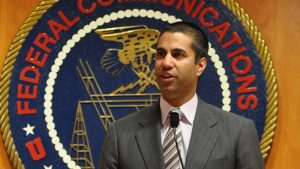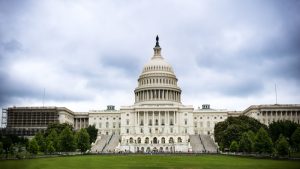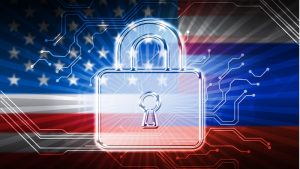The District of Columbia had four-times the previous record of absentee voter requests for the June 2 primary election, an increase which caused IT infrastructure to fail and some ballots to be processed online.
With the rise in telework, distance learning, and telehealth, the COVID-19 pandemic has shown a spotlight on the importance of broadband connectivity. In a move to promote broadband expansion in rural America, the U.S. Chamber of Commerce’s Technology Engagement Center (C_TEC) released nine policy principles to close the digital divide.
The Election Assistance Commission (EAC) is hosting a site dedicated to compiling election security resource amid the COVID-19 pandemic with help from the Cybersecurity and Infrastructure Security Agency (CISA).
Federal Communications Commission (FCC) Chairman Ajit Pai asked members of a Senate Appropriations subcommittee for $65 million to implement the Broadband DATA Act, a law signed in March to improve the accuracy of broadband deployment maps.
In order to overcome systematic racial biases that can show up in algorithms, three scholars at a June 19 Brookings Institution webinar suggested putting recognition of historical racial bias at the center of algorithm development from the very beginning of the design process.
The First Responder Network Authority Board approved more than $200 million in funding to enhance FirstNet, the nationwide public safety broadband network.
The 2021 National Defense Authorization Act (NDAA) that cleared the Senate Armed Services Committee last week on a bipartisan vote of 25-2 includes the Spectrum Modernization Act, which would direct the National Telecommunications and Information Administration (NTIA) to evaluate a range of IT improvements that would improve Federal government spectrum management.
Rep. G. K. Butterfield, D-N.C., introduced the Expanding Opportunities for Broadband Deployment Act on June 11 to increase access to and accelerate deployment of broadband services across the United States.
Sen. Gary Peters, D-Mich., introduced two bills – the Continuity of Economy Act of 2020 and the National Guard Cyber Interoperability Act of 2020 – with the goal of bolstering the United States’ cyber defenses.
Reps. Xochitl Torres Small, D-N.M., and Dan Newhouse, R-Wash., and Sens. Martha McSally, R-Ariz., Doug Jones, D-Ala., introduced legislation in both chambers of Congress June 11 to invest $50 million in rural telehealth initiatives amid the COVID-19 coronavirus pandemic.













